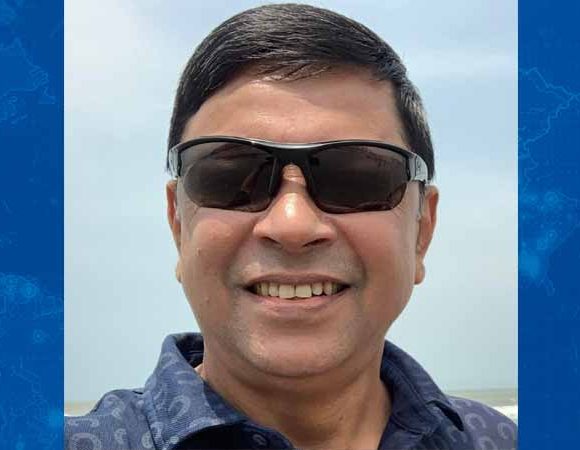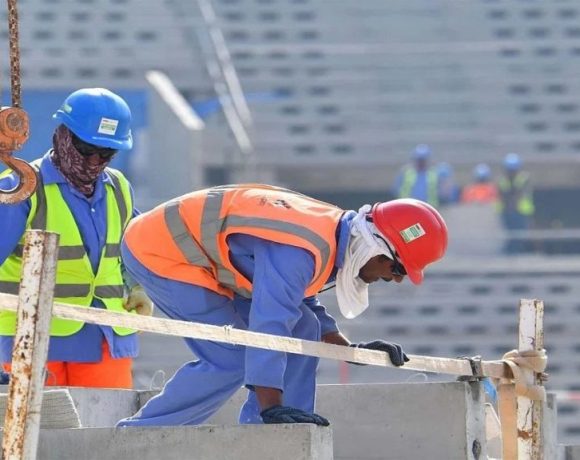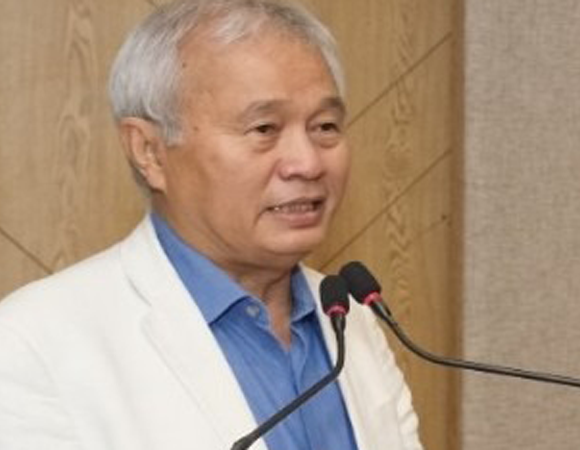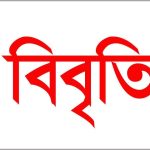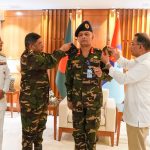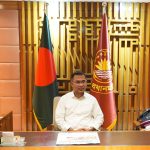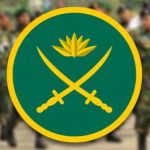Bangladesh’s Position: Ethnic Communities Are Not Indigenous

SAYED IBN RAHMAT
The Government of Bangladesh has reiterated its formal stance against the use of the term ‘Adivasi’ (indigenous) in reference to ethnic communities residing in the country. Over the years, various ministries have issued official circulars directing relevant authorities and stakeholders not to use the term, citing the Fifteenth Amendment to the Constitution.
According to these circulars, the appropriate constitutional terminology for such communities includes ‘upajati’ (tribes), ‘khudra jatishatta’ (small ethnic groups), and ‘nri-goshthi’ (ethnic communities). These terms are to be used in all official, media, and institutional references.
The government has also issued warnings against the use of the word ‘Adivasi’ to describe small ethnic minorities in the print and electronic media, including news reports, articles, talk shows, and other published or broadcast content. A decision has also been made to remove the term from official documents, textbooks, and legal materials.
Additionally, the Ministry of Housing and Public Works has issued directives prohibiting the use of key state structures—such as the National Martyrs’ Memorial, the TSC Square, the National Museum, and the Liberation War Museum—for events or programmes that promote the term ‘indigenous.’ This restriction particularly applies to activities supported by domestic or international interest groups seeking to legitimise the term, which the government deems unconstitutional.
Article 23A of the Constitution of Bangladesh provides that the State shall take steps to preserve, develop, and promote the unique local culture and heritage of tribes, minor races, ethnic sects and communities, referring to communities other than the majority Bengali population.
Furthermore, in the Chittagong Hill Tracts (CHT) Peace Accord signed on 2 December 1997 between the Government of Bangladesh and the Parbatya Chattagram Jana Sanghati Samiti (PCJSS), residents of the region were officially identified as tribal across multiple clauses. These include Part A, Clause 1; Part B, Clauses 8, 11, 14(b), 34(c); Part C, Clauses 3, 7, 8(a), 9(e), 13; and Part D, Clauses 1, 2, 3, 7, 10, 11, and 19.
This designation is also reflected in the Chittagong Hill Tracts Regional Council Act, 1998, under Sections 2(g), 5(1)(b), 5(2), 5(3), 5(5), 7(1), 7(2), 8(1), 8(3), 28, and 29(1); and in the Hill District (Local Government) Council Act, 1989, under Sections 2(b), 4(1)(b, d), 4(3), 4(4), 5(1), 5(2), 6(1), 6(3), 14, 19, 25(2), 32(2), 62, and 66.
During the formulation of the CHT Peace Accord and associated legislation, even the ethnic communities in the hill districts identified themselves as upajati (tribes).
“Don’t use ‘indigenous’ in media, public discourse”
The Ministry of Information and Broadcasting has most recently issued a circular instructing against the use of the term ‘indigenous’ in reference to ethnic communities in Bangladesh. The circular, signed by Deputy Secretary Sheikh Shamsur Rahman, was issued on 19 July 2022 and referenced under memo number 15.00.0000.024.18.183.14.596.
According to the circular, the Fifteenth Amendment to the Constitution of Bangladesh identifies small communities or groups residing in the country as ‘upajati’ (tribes), ‘khudra jatishatta’ (small ethnic groups), or ‘nri-goshthi’ (ethnic communities). The circular notes that, in light of the upcoming observance of the International Day of the World’s Indigenous Peoples on 9 August, university faculty, subject-matter experts, television and radio stations, newspaper editors, and members of civil society participating in talk shows are constitutionally obliged to refrain from using the term ‘Adivasi’ in the context of Bangladesh.
Earlier, on 18 August 2018, a similar circular was issued by the Press Information Department (PID), instructing the media to discontinue the use of the term ‘indigenous’, which was described as unconstitutional. The circular, signed by Senior Deputy Principal Information Officer (Press) Md. Saifullah, carried the reference number 15.52.0000.004.18.012.14.4053.
That directive reiterated that, under the Fifteenth Amendment, small communities or groups in Bangladesh must be referred to as ‘upajati’, ‘khudra jatishatta’, or ‘nri-goshthi’. It emphasised that tribal communities must not be identified as ‘indigenous’ under any circumstances, as this goes against the constitutional terminology. Media professionals were therefore advised to act responsibly from their respective positions and avoid using the term in reports, broadcasts, or commentary.
Ministries Agree: Avoid the term ‘indigenous’
The Government of Bangladesh first formally articulated its position on the term ‘indigenous’ during the tenure of the four-party coalition government. On 25 July 2005, the United Nations Wing of the Ministry of Foreign Affairs issued a circular stating that there are no ‘indigenous’ peoples in Bangladesh and instructed that tribal communities residing in the country should not be referred to using that term. The circular, signed by Assistant Secretary (UN) Samia Anjum, was issued under reference number UN-HR-5015.
The directive, titled “Regarding the Tribal and Indigenous Debate”, noted that a definitional debate exists within various United Nations forums concerning the distinction between ‘indigenous’ and ‘tribal’ peoples.
According to the circular, Indigenous peoples are defined as those who have lived in their current territories for generations, such as the ‘Red Indians’ of the United States and the ‘Aborigines’ of Australia. Based on this understanding, the Bangladesh delegation has consistently refrained from identifying its tribal communities as ‘indigenous’ in international forums, referring to them instead as tribal or ethnic minority groups. Similar positions have been adopted by countries such as India and Pakistan, which do not recognise their tribal populations as ‘indigenous’.
However, the circular acknowledged that in certain domestic contexts, the terms ‘indigenous’ and ‘tribal’ are used interchangeably, which contradicts Bangladesh’s official stance at the United Nations.
In light of this, the Ministry recommended that all relevant government ministries and divisions adopt a consistent position, aligning with the country’s representation at international forums.
On 9 September 2008, during the caretaker government period following the 2007 political crisis, the Ministry of Chittagong Hill Tracts Affairs issued a circular further clarifying Bangladesh’s position on the indigenous issue. The document, signed by Senior Assistant Secretary Kazi Abul Kalam (Reference: PachBim (Sam-1)-37/97-117), noted that the Ministry is responsible for the hill districts of Rangamati, Bandarban, and Khagrachari, where the population is broadly categorised into two groups: (a) tribal and (b) non-tribal (Bengali).
The circular also referenced several legal instruments and agreements where the term ‘Tribal’ is used to describe non-Bengali populations in the Chittagong Hill Tracts. These include: the 1997 Peace Accord (sections A1; B8, B11, B14(b), B34(g); C3, C7, C8(a), C9(ng), C13; and D1, D2, D3, D7, D10, D11, D19); The Chittagong Hill Tracts Regional Council Act, 1998 (sections 2(g), 5(1)(b), 5(2), 5(3), 5(5), 7(1), 7(2), 8(1), 8(3), 28, 29(1)); and the Khagrachari Hill District Council Act, 1989 (sections 2(b), 4(1)(b, g), 4(3), 4(4), 5(1), 5(2), 6(1), 6(3), 14, 19, 25(2), 32(2), 62, 66).
Based on a letter from the Ministry of Foreign Affairs (Memo: UN-GA-4222/08, dated 19 August 2008) affirming that “The country has some tribal populations and there are no indigenous peoples,” the Ministry of Chittagong Hill Tracts Affairs endorsed this view. At the time, the ministry was led by Barrister Devasish Roy, Chakma Circle Chief, holding the rank of State Minister.
Following the Awami League’s return to power, a confidential report was issued on 28 January 2010 by the Ministry of CHT Affairs in response to a letter from the Prime Minister’s Office (Ref: 22.09.1.0.0.24.2009 (Part-8)-799, dated 28/01/2010). Signed by Deputy Secretary (Coordination-2) Md. Mojibur Rahman (Memo: PachBim (Sam-2)-29/2010/25), the report was titled “On the Subversive Activities of Referring to Tribal Communities as indigenous.”
The report stated that 45 tribal communities reside in Bangladesh and that all official documents—including the Constitution, the Hill District Council Acts, the Regional Council Act, and the 1997 Peace Accord—identify these groups as tribal. Nowhere are they referred to as indigenous.
Nevertheless, the report noted that some leaders, intellectuals, educated individuals in the hill regions, and even journalists have recently been referring to these groups as ‘indigenous.’ According to the report, some NGOs, foreign media outlets, and Christian-majority countries affiliated with the United Nations are allegedly supporting such terminology to advance separatist agendas. It also observed that a significant portion of the tribal population had converted to Christianity, distancing themselves from traditional cultures and religions.
While previous directives had been issued by the Ministry of Foreign Affairs instructing that tribal groups not be labeled as ‘indigenous’, the report claimed that those instructions were no longer being effectively implemented.
It also cited recent calls to rename the Ministry of CHT Affairs to the Ministry of Indigenous Affairs and pointed to increasing international funding and programs—by agencies including UNDP, DANIDA, and ADB—aimed at promoting autonomy and empowerment of tribal communities. The report expressed concern that such efforts were contributing to the push for formal recognition of these groups as ‘indigenous’.
The report further observed that domestic intellectuals and journalists have continued to use the term ‘indigenous’ in seminars, symposia, workshops, and publications. It warned that continued use of the term may lead to future legal recognition as ‘indigenous’.
Therefore, the report requested that all tribal communities residing in Bangladesh must not, under any circumstances, be referred to as ‘indigenous’ instead of ‘tribal’. It also called for increased oversight of NGO activities in the hill regions and the implementation of effective precautionary measures to prevent misuse of the term.
Decision to remove the term ‘indigenous’ from official texts
The Government of Bangladesh has decided to remove the term ‘indigenous’ from all official documents, including textbooks and legal instruments, and replace it with the constitutionally recognised term ‘Small Ethnic Groups (Ethnic Minorities)’. This decision was taken at an inter-ministerial meeting on 21 July 2011 at the Ministry of Foreign Affairs, chaired by the Foreign Secretary and attended by senior officials from relevant ministries and agencies.
According to the meeting minutes (Ref: UN-HR-5015/10), signed by Director General Saida Muna Tasneem of the UN Wing of the Ministry of Foreign Affairs, the term ‘indigenous’ will be removed from all laws, policies, government documents, official statements, and educational materials at both public and private levels. The replacement terminology—‘Small Ethnic Groups (Ethnic Minorities)’—will be proposed for cabinet approval, in line with the Fifteenth Amendment to the Constitution. Once approved, all government institutions will be directed via Act/SRO circulars to implement the change.
The Foreign Secretary noted that certain ethnic communities in the Chittagong Hill Tracts (CHT) identify themselves as ‘indigenous’, generating national and international debate and adversely affecting Bangladesh’s image abroad. He highlighted the negative sociopolitical and territorial implications of the misuse of the term, including concerns related to national sovereignty and geographic integrity.
Citing archaeological findings from Wari-Bateshwar, the Foreign Secretary stated that the general population of Bangladesh has inhabited the territory for approximately 4,000 years, suggesting that they constitute the original population or First Nation. In contrast, historical records indicate that the ethnic groups residing in the CHT migrated to the area around 1727 and therefore do not qualify as indigenous under internationally accepted definitions.
The discussion referenced ILO Convention 169, which defines indigenous peoples as those displaced by foreign colonial settlers. Although the Indian subcontinent was colonised, the British did not implement settlement colonisation in Bengal, nor did they displace native populations or suppress their cultures. Therefore, by both historical and legal standards, the broader population of Bangladesh—numbering approximately 150 million—is considered indigenous to the land.
It was further noted that many of the ethnic communities in the CHT migrated from regions such as Myanmar and Cambodia during the Sultanate and Mughal periods. Historical records show that Sultan Fakhruddin Mubarak Shah brought the CHT under his rule in 1339, followed by the reestablishment of Muslim rule under Subedar Shaista Khan. Present-day tribal communities reportedly migrated to the region between 1727 and 1730.
A representative from the Armed Forces presented a PowerPoint briefing on the migration history of the CHT communities, including an interview with Bomang King Aung Shue Pru Chowdhury, who acknowledged that his community has lived in Bangladesh for approximately 300 years and does not identify as ‘indigenous’.
The representative from the Ministry of Chittagong Hill Tracts Affairs confirmed that the ministry does not use the term ‘indigenous’ in any official documentation and follows the Prime Minister’s Office directive to use ‘Small Ethnic Groups’. Similar positions were expressed by the Ministry of Cultural Affairs and the Ministry of Land.
The meeting emphasised the importance of consulting the Ministry of Labour and Employment, the Ministry of Civil Aviation and Tourism, the Economic Relations Division, and the NGO Affairs Bureau regarding terminology used in ILO Conventions 107 and 169. The Foreign Secretary reminded participants that the 1997 CHT Peace Accord also uses the term ‘tribal’, not ‘‘indigenous’.
Later in the meeting, the Foreign Minister joined and addressed the participants. He reiterated that the Fifteenth Amendment uses the term ‘Small Ethnic Groups’ and called for its harmonised incorporation across all national legislation and administrative frameworks.
The Foreign Minister also referred to instances where CHT representatives identified themselves as ‘indigenous’ at the United Nations Permanent Forum on Indigenous Issues (UNPFII), alleging non-implementation of the Peace Accord and misconduct by the military. He cautioned that such narratives could negatively impact Bangladesh’s participation in international peacekeeping and other diplomatic engagements.
To expedite cabinet-level discussions, the Foreign Minister requested all relevant ministries to submit their recommendations, observations, or no-objection statements regarding the meeting minutes within two working days. He also sought active cooperation from all stakeholders.
Key Decisions from the Meeting
- A proposal will be submitted to the Cabinet to replace the term ‘indigenous’ with ‘Small Ethnic Groups (Ethnic Minorities)’ in all laws, policies, documents, statements, and educational materials. Upon approval, implementation will be carried out through necessary Acts/SRO circulars across all government entities.
- It will be formally recognised that the small ethnic groups in the CHT are not the First Nation of Bangladesh. The general population, having lived in the region for millennia, constitutes the indigenous people. Ministries, divisional commissioners, and local representatives will raise awareness of this at grassroots and educational levels.
- In consultation with the Ministries of Education, Foreign Affairs, and Cultural Affairs, all textbooks will be revised to reflect accurate historical information. The Ministry of Education will instruct headteachers, principals, and vice-chancellors to ensure proper dissemination of this content.
- The Ministry of Information, in consultation with the Ministry of Foreign Affairs, will engage public and private media to raise awareness that the CHT groups are not ‘indigenous’ and will revise misleading narratives accordingly.
- The Ministry of Cultural Affairs, in coordination with the Ministry of Foreign Affairs, will work with cultural organisations, NGOs, and civil society to promote accurate terminology and revise names of organisations, laws, and publications that currently use the term ‘indigenous’.
- The Ministry of Foreign Affairs will undertake diplomatic efforts—particularly through the United Nations and bilateral channels—to inform foreign governments that the broader population of Bangladesh is indigenous, while the CHT groups are not. Communication tools such as films, posters, books, and leaflets will be developed for outreach.
- Although not formally notified, the Ministry of Civil Aviation and Tourism, the Ministry of Labour and Employment, the Economic Relations Division, and the NGO Affairs Bureau will be contacted to provide comments, recommendations, or no-objection statements.
- Any ongoing or proposed foreign aid or NGO projects under the label of ‘Indigenous Development’ will be renamed as ‘Small Ethnic Group Development’ projects.
- The Ministry of Civil Aviation and Tourism will ensure that promotional materials at airports and tourist destinations are updated to replace ‘indigenous’ with ‘Small Ethnic Groups’.
- To resolve the terminology issue through formal policy, the Ministry of Foreign Affairs will compile the relevant recommendations and submit a summary to the Cabinet for early consideration.
Ban on using state venues for events promoting the term ‘indigenous
The Ministry of Housing and Public Works has issued a directive prohibiting the use of key national infrastructure and historic public venues—such as the National Martyrs’ Memorial, TSC Square at Dhaka University, the National Museum, and the Liberation War Museum—for programmes or events promoting the term ‘indigenous’, which it described as unconstitutional.
The directive, titled “Selection of Venues for Programmes Demanding So-Called Indigenous Recognition and Use of Constitutionally Appropriate Term”, was issued on 16 August 2015 under the signature of Joint Secretary Md. Moniruzzaman. The official reference number is 25.015.001.02.00.010.2005.1313.
According to the circular, the Fifth Amendment of the Constitution of Bangladesh identifies small communities residing in the country as ‘tribal’, ‘small ethnic groups’, or ‘ethnic minorities’. It states that certain interest groups, allegedly supported by both domestic and foreign actors, are engaged in a coordinated effort to promote the unconstitutional term ‘indigenous’.
The ministry expressed concern over the growing trend of using prominent national venues—particularly in Dhaka, including the Liberation War Museum, Shilpakala Academy, National Museum, TSC Square, and the Engineers’ Institution—for such programmes. It also noted a tendency to strategically involve senior government officials and national political figures in these events.
To prevent what it described as a strategic attempt to legitimise the term ‘indigenous’ within the country, the ministry instructed relevant authorities to exercise caution and refrain from granting permission for the use of state-owned venues and historically significant locations for events associated with this agenda.
No ‘Indigenous’ in Tribals’ Citizenship Docs
The Ministry of Chittagong Hill Tracts Affairs has issued a directive instructing that tribal residents of the Chittagong Hill Tracts must not be referred to as ‘indigenous’ in citizenship certificates or official documents. Instead, the terms mentioned in the constitution—‘tribal’, ‘small ethnic group’, ‘ethnic community’, and ‘ethnic group’—are to be used.
This directive was issued in a circular by the Ministry on 23 October 2017. The directive was communicated to the Divisional Commissioner of Chattogram, the three Hill District Council chairmen, the three Hill District Commissioners, and the three Hill Circle Chiefs.
The circular, signed by ASM Shahen Reza, Deputy Secretary (Coordination-2) of Coordination-2 Division of the Ministry, was issued under memo no. 29.00.0000.224.27.16.2016-746, dated 23 October 2017.
It was learned that the Chief of the Mong Circle in Khagrachari Hill District had started using the term ‘indigenous’ in permanent citizenship certificates for tribal residents of the Chittagong Hill Tracts. A report on this was published by Parbatta News, drawing widespread attention. Eventually, the matter came to the attention of the Ministry of Chittagong Hill Tracts Affairs via the Divisional Commissioner.
The Ministry’s directive stated that according to Section 1, Part B of the Chittagong Hill Tracts Peace Accord, the term ‘tribal’ shall remain in effect under the relevant council laws. Additionally, Article 23A of the Constitution of Bangladesh states the State shall take steps to preserve, develop, and promote the unique regional culture and heritage of tribes, small ethnic groups, ethnic communities, and ethnic groups. Therefore, it is stated that there is no scope to use the term ‘indigenous’ in citizenship certificates or official documents for residents of the hill region, and the use of constitutionally recognised terminology is to be enforced.
Although the Mong Circle Chief of Khagrachari and the Bomang Circle Chief of Bandarban complied with the Ministry’s directive, it was later found that the Chakma Circle Chief of Rangamati had not followed the instructions. As a result, on 11 October 2020, the Ministry issued another letter directing the Chakma Circle Chief not to use the term ‘indigenous’ in reference to tribal residents of the Chittagong Hill Tracts.
This letter, signed by Deputy Secretary Shahanara Yasmin Lili, was issued under memo no. 29.00.0000.224.27.18.2018.216. It reaffirmed that under Section 1, Part B of the CHT Peace Accord, the term ‘tribal’ remains effective in council laws, and Article 23A of the Constitution similarly refers to ‘tribes, small ethnic groups, ethnic communities, and groups’. The letter reiterated that only the terms stated in the Constitution are to be used in all related contexts.
It further directed the Chakma Circle Chief, who had previously failed to comply with the Ministry’s earlier directive, to use only the constitutionally approved terms in issuing citizenship certificates or handling official matters.
The writer is Journalist and Researcher on Chittagong Hill Tracts affairs.

